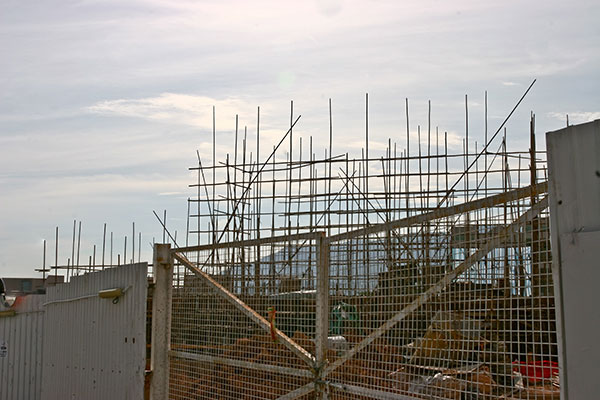Indiana’s rate of non-fatal workplace injuries and illnesses dropped to a historic low in 2018—3.3 per 100 full-time workers (compared to 11.3 per 100 full-time workers in 1994). The state’s non-fatal injury and illness rate has declined by 71 percent in the last 24 years.
That’s good news.
The bad news is that tens of thousands of Hoosiers continue to get seriously injured or sick, or even die, every year in Indiana—often due to unsafe working conditions. Hazardous work environments can be found across many different industries, with construction, manufacturing, trade, transportation and healthcare being among the most dangerous.
Hazardous conditions in the workplace can result in preventable traumatic one-time accidents (slip and fall, equipment failure, explosion, etc.), repetitive motion injuries (chronic back pain, shoulder injuries, etc.) or occupational illnesses and diseases (carpal tunnel, tendonitis, cancer, etc.). Fortunately, Indiana’s Workers’ Compensation Act exists to compensate injured or ill workers, and employment laws protect workers who speak out about unsafe working conditions.
It’s against the law for employers to fire, retaliate or discriminate against employees who report unsafe working conditions in Indiana. What’s more, when injuries or health conditions arise because a person is exposed to hazardous working conditions due to physical, chemical or biological factors, they may be eligible for workers’ comp benefits.
Can you be fired while on workers’ comp in Indiana?
The technical answer is no. Under the 1973 Indiana Supreme Court case of Frampton v. Central Indiana Gas Company, there is an exception to the at-will employment doctrine stating that you may be fired for any reason or no reason at all. The exception is that you may not be retaliated against for exercising your statutory rights. Indiana’s Workers’ Compensation Act provides statutory rights to injured workers. Making a claim for workers’ comp benefits is exercising those rights. If terminated, you likely have a right to sue the employer for a retaliatory discharge claim, which are now known as “Frampton Claims.”
If you or a loved one were injured or became sick due to unsafe working conditions, it’s important that you fully understand your rights under Indiana’s workers’ compensation law. At Finderson Law, our Fort Wayne work injury lawyers have represented injured workers and families for over 25 years. We can help you understand your rights and efficiently navigate the workers’ compensation claims (or appeals) process.
You’re not alone.
“I’ve been handling workers’ comp cases for over 25 years. Our firm knows the law, knows the cases and knows the process inside and out. You’re unlikely to have a situation we haven’t seen before. And as with any other situation involving insurance companies, you KNOW that the other side is going to have lawyers looking at your case.
Call us today. We don’t charge you for the initial consultation, we defer the small flat fee to the end of the case and earn no additional fee unless we make a recovery for you. So, you really don’t have much to lose. What you could gain, however, is peace of mind in knowing that your workers’ comp claim is being handled by a professional, one who is 100% dedicated to fairness to YOU.
And that’s us.”
More on Indiana Workers’ Comp System and How We Can Help

What is an Unsafe Working Environment or “Imminent Danger”?
A work environment can be considered unsafe or dangerous if an employee cannot perform their regular work duties because of something that poses a risk to their health, safety and well-being. Unsafe conditions can involve a physical, ergonomic, biological or chemical hazard, though some dangerous environments or situations may not fall under any of those categories.
Common examples of unsafe working conditions include:
- Broken or defective equipment
- Lack of PPE
- Inadequate guards
- Poor air quality
- Fire hazard
- Exposed wires or extension cords
- Toxic materials or chemicals
- Insufficient lighting
- Slick or cluttered floor
- Improperly secured materials or machinery
- Lack of proper training
- Congested or confined workspaces
- Block or unsecured entries/exits
- Unsanitary conditions
What Organizations Exist to Protect Workers from Unsafe Working Conditions?
Certain federal, state and industry organizations exist to ensure that workers are protected from unsafe work environments and give workers a channel for reporting serious hazards. In Indiana, these organizations include:
- OSHA. The Occupational Health & Safety Administration is a federal program under the United States Department of Labor that was created by the Occupational Safety and Health Act of 1970. OSHA’s main purpose is to “ensure safe and healthful working conditions for working men and women by setting and enforcing standards and by providing training, outreach, education and assistance.” OSHA serves most private sector employers and their workers, as well as some public sector employers and workers.
- INSafe. INSafe is a division of the Indiana Department of Labor that “works with Indiana’s employers, employees, labor unions, professional groups, trade organizations and others to ensure workplace health and safety” by providing free on-site consultations, group training and seminars, educational publications and training materials, and voluntary health and safety programs. Unlike OSHA, INSafe does not impose fines, but rather offers programs and services that educate and assist employers in safety compliance.
- Labor unions. Labor unions have long advocated for better pay and working conditions for their members. The labor movement was largely responsible for the passage of the Occupational Safety and Health Act of 1970 (which established OSHA) and the Federal Mine Safety and Health Act of 1977. By levering the power of collective bargaining and organization, unions are often able to secure stronger worker protections and give their members a clear channel for reporting unsafe conditions. If you wish to report a hazard in the workplace and are a member of a union, talk to your union representative or steward.
Other national organizations that offer resources, data and information about workplace safety include:
- National Safety Council. NSC is a 100-year-old nonprofit safety advocate and mission-based organization that focuses on eliminating the leading causes of preventable death in the workplace, as well as on American roadways.
- National Institute for Occupational Safety and Health. NIOSH is a research agency, under the U.S. Centers for Disease Control and Prevention (CDC), that focuses on the study of worker safety and health, as well as empowering employers and workers to create safe and healthy workplaces.
What to Do if There’s an Imminent Danger at Your Work
If an unsafe working condition clearly makes an injury or illness more likely, then your first obligation is to report the hazard to your employer as soon as possible so that they have a chance to correct the issue and prevent others from getting hurt.
When you notify your employer about the danger, be sure to communicate that you believe an imminent danger exists and let them know that you won’t perform the work unless and until that hazard is resolved or removed. However, don’t leave work. Remain at the job site unless ordered to leave by your employer.
If your employer refuses to acknowledge your concerns regarding the unsafe working condition and doesn’t take steps to resolve it—or if your employer retaliates against you for refusing to perform the dangerous work—then you should file a complaint with OSHA. If you wish to file a complaint for employer retaliation, OSHA must be notified within 30 days of the alleged reprisal.
It’s important you contact OSHA immediately if your employer refuses to fix a problem so that steps can be taken to address the danger.
No form is required to file a complaint, but you must call OSHA.
Can you refuse work due to an unsafe working condition?
Indiana workers have the right to refuse work if they believe working conditions are unsafe or unhealthful so long as certain conditions are met. However, it’s important that you remain at the worksite until ordered to leave by your employer, even if they refuse to correct the danger and even if you’ve filed an OSHA complaint. You don’t have to continue putting yourself at risk, however, ask to be moved or given different job duties while the danger persists. This helps to shield your employment and workers’ compensation rights.
According to the OSHA, your right to refuse to do a task is protected so long as ALL of these conditions are met:
- Where possible, you’ve asked your employer to eliminate the danger, but the employer failed to do so;
- You refused to work in “good faith,” meaning you genuinely believe that an imminent danger exists;
- A reasonable person would agree that there is a real danger of death or serious injury; and
- There isn’t enough time, due to the urgency of the hazard, to get it corrected through regular enforcement channels, such as requesting an OSHA inspection.
In other words:
“If the condition clearly presents a risk of death or serious physical harm, there is not sufficient time for OSHA to inspect, and, where possible, you have brought the condition to the attention of your employer, you may have a legal right to refuse to work in a situation in which you would be exposed to the hazard.”
Even if you aren’t in imminent and immediate danger, you should still report the hazard to your employer and OSHA if the danger persists. However, you’ll need to remain at the worksite in order to protect your employment and workers’ rights.
Unsafe Working Conditions and Workers’ Compensation
If you are injured on the job or become ill due to an unsafe working environment, then you’ll need to file a workers’ compensation claim as soon as possible. Most employers and companies in Indiana are required to have workers’ compensation insurance, and employees are covered from day 1 of their job.
Under the statute of limitations, injured workers in Indiana have 2 years after the last date of compensation paid or from the date of injury to file a workers’ compensation claim and seek financial benefits for:
- Medical bills
- Lost wages
- Disability (temporary and/or permanent)
- Vocational rehabilitation (job retraining, relocating, etc.)
- Travel expenses (mileage to/from doctors’ appointments)
- Death benefits (in the event of a fatal work accident)
When to Consult with a Fort Wayne Workers’ Comp Lawyer
If you are seriously hurt at work, first you should immediately seek medical care and notify your employer. Then, for help filing a workers’ compensation claim and securing the full benefits you deserve, reach out to an experienced Indiana work injury attorney at Finderson Law. We can guarantee that you receive the highest quality representation and personal legal service for your workers’ compensation claim or appeal.
As compassionate and tireless advocates, our attorneys can guide you through the entire workers’ compensation claim process—from investigating the unsafe working conditions and filing an OSHA complaint, to selecting the right doctor and skillfully negotiating for the maximum compensation possible for you and your family. We are diligent problem solvers who partner with our clients to help them meet their objectives and favorably resolve the most complex legal matters.
We’ve helped hundreds of clients. Our history of providing superior legal services —and delivering exceptional results — has earned us a 5-star rating on Facebook and Google.
REVIEWS FROM OUR CLIENTS
Great to work with. Went above and beyond to help us. Very professional and personable. They cared about me and getting done what was needed. Would highly recommend this firm. - D.P.
Always on top of the process and keeps in contact. Communication to me is key regardless if they are making progress or not and they were always answering the phone or returning calls promptly and answering any questions along the way. Top notch and while I hope to never use them again, I highly recommend them. Excellent and phenomenal! - H.H.
Roger went above and beyond for me and got me the results I needed. I'm extremely satisfied with how things turned out! Hopefully, I will not have to visit the office again; but, if I do need a lawyer, I know where to go! - T.
Serving Fort Wayne & Communities Across Indiana
If you or a loved one were hurt, don’t hesitate to contact our law firm to find out more about your legal options and learn how skilled representation can make all the difference in your case.
From our law office in Fort Wayne, we are proud to represent clients throughout Allen County and the state of Indiana.






 744 E Till Rd, Suite 102
744 E Till Rd, Suite 102

